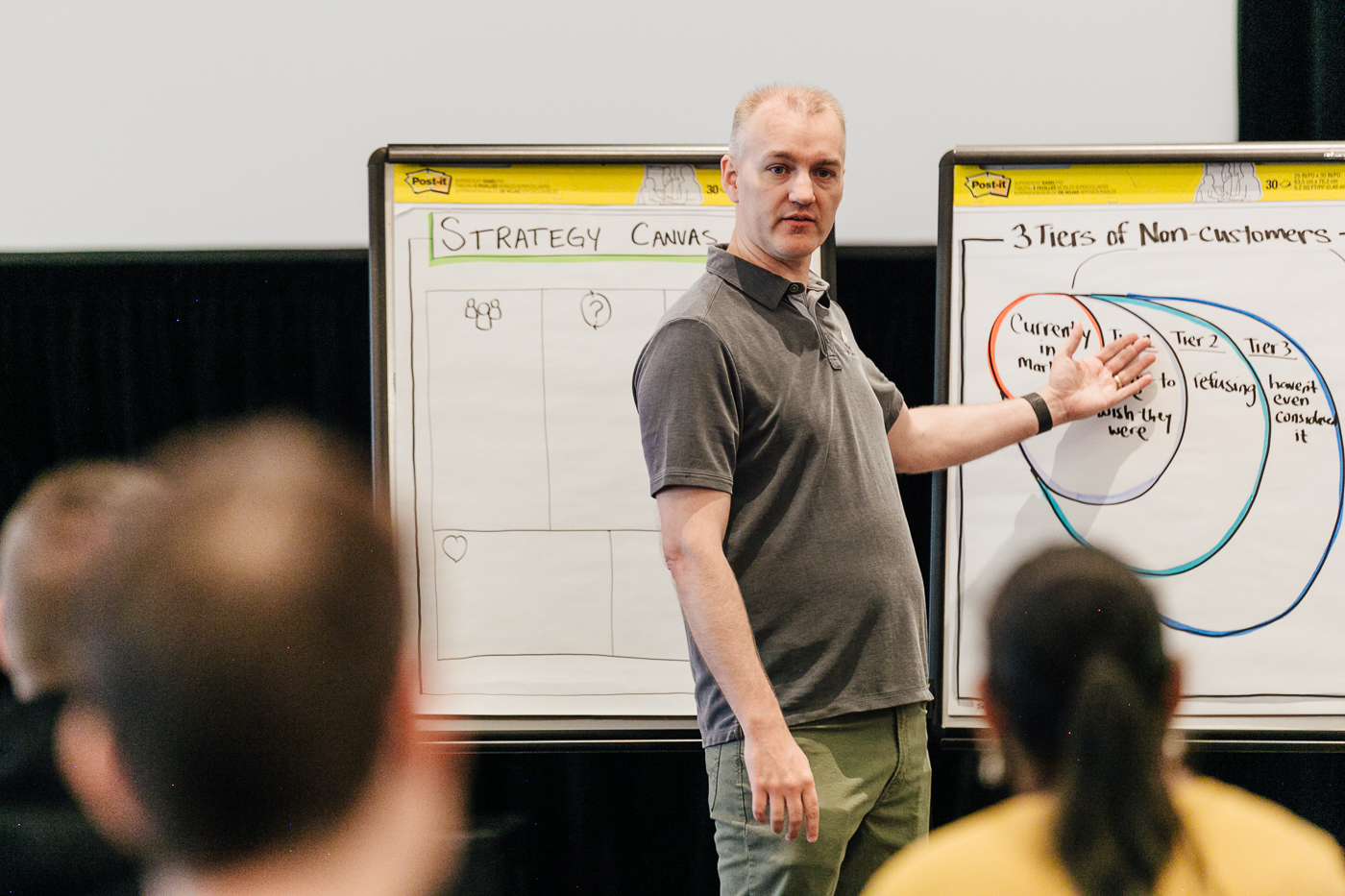 Ever facilitated a meeting that just seems to keep going off the rails? Often, whether a meeting is going to feel like that or just feel smooth and easy is determined during the first 5 minutes. So, how do you start a meeting in a way that almost always ensures success?
Ever facilitated a meeting that just seems to keep going off the rails? Often, whether a meeting is going to feel like that or just feel smooth and easy is determined during the first 5 minutes. So, how do you start a meeting in a way that almost always ensures success?
It’s All in the Framing
Don’t just launch into the work. Use the first minutes of a meeting to get the whole group aligned in the same direction, with a clear purpose and roles.
A good framing statement does the following:
- Welcomes the participants
- Summarizes why we’re here and what we’re trying to achieve together
- Gives an overview of how we’re going to do it (just enough so that participants trust you have a plan)
- Clarifies how each participant can contribute
- Addresses potential concerns or distractions, when necessary
Ideally, the framing statement amplifies participants’ sense of:
- Autonomy. It’s clear where I have freedom to make choices.
- Mastery. I see how I’m going to get to express and/or grow my competence in this meeting.
- Purpose. What we do here is going to matter.
Here’s a weak framing statement:
“Welcome to the retro. We’re going to brainstorm what worked and what didn’t and come up with something to try for the next sprint.”
It welcomes participants and touches on the “how,” but it doesn’t really point to a larger purpose or clarify roles.
Here’s a better one for that same meeting:
“Welcome to the retro. We’ve been heads-down in our work for the past couple of weeks. Our goal in this time is to zoom out from the day-to-day work and look for ways we can increase our team’s impact and make our work flow more smoothly.
“To do that, we’re going to reflect on what happened during the sprint, consider what’s working and what’s not with respect to maximizing impact and flow, and come up with an experiment to try in the next sprint.
“Each of you has a unique perspective, so you can contribute to the best outcome here by bringing the data from your experience during the sprint and by helping the rest of the team interpret the shared data from our collective experiences. Let’s dive in…”
You can bet this team is going to be just a little more engaged in that retrospective. They know what they’re trying to accomplish. They have a shared sense of why it matters. And they’ve been primed to contribute in a useful way.
Prepare and Practice
As a facilitator, it’s worth taking a few minutes to write out and practice what you’re going to say at the top of a meeting to increase your chances of a good outcome. The higher the stakes of a meeting, the more it’s worth your time to prepare a strong opening.
Learn More
Want to learn more about how to facilitate effective meetings—and not just the first 5 minutes? Join us this summer for a half day workshop on the most important facilitation skills and how to apply them to your meetings:
Great Facilitation: Techniques for Leading Engaging and Productive Meetings
Aug 22, 2023, from 1:00PM – 5:00PM MDT (Denver)
Last updated